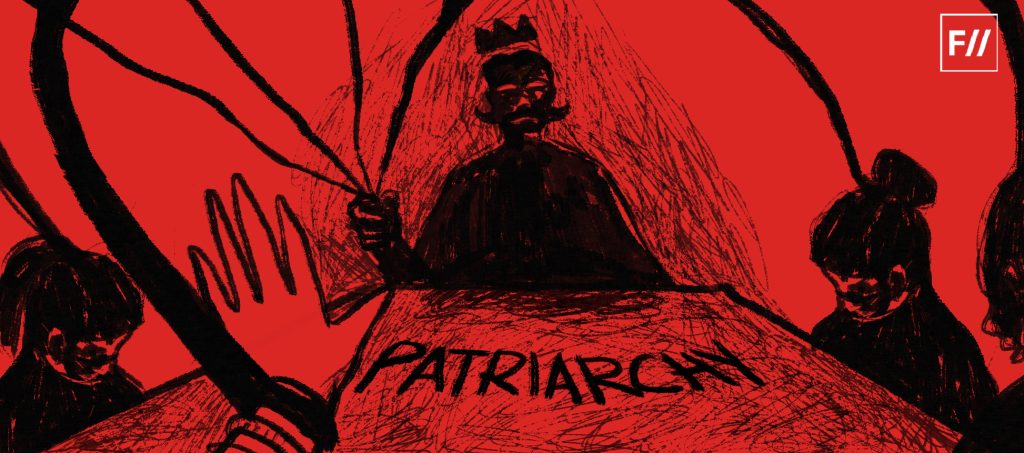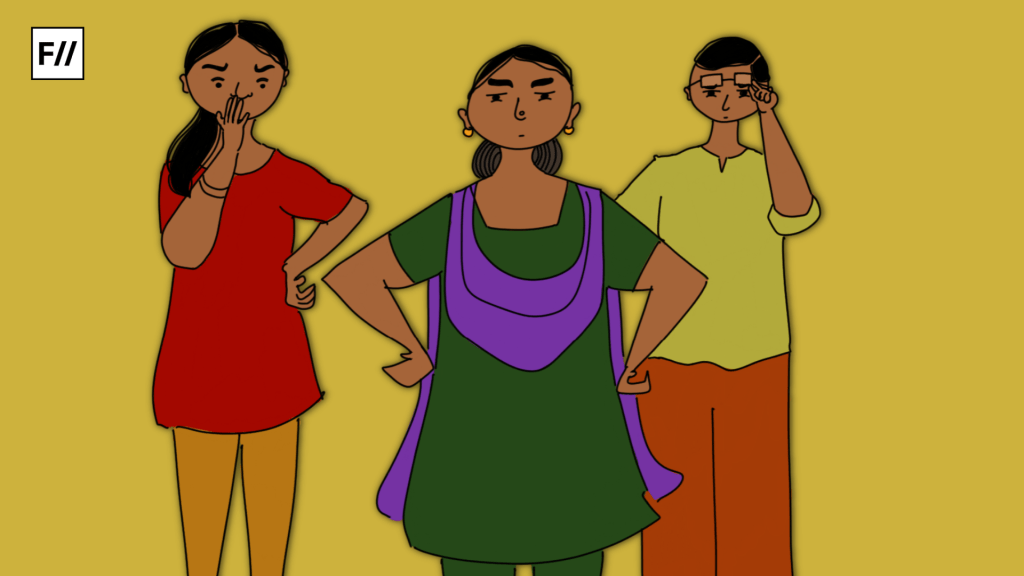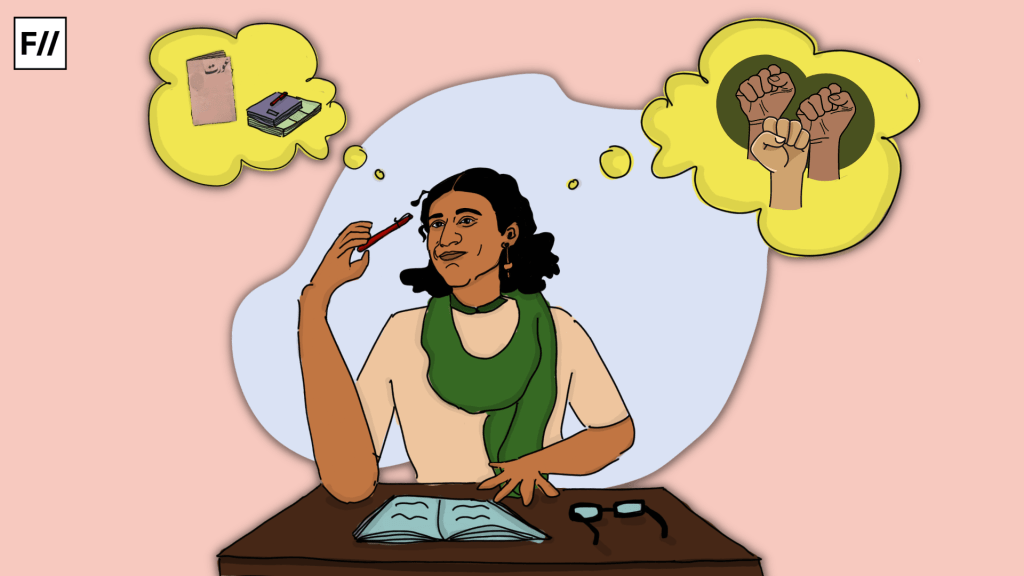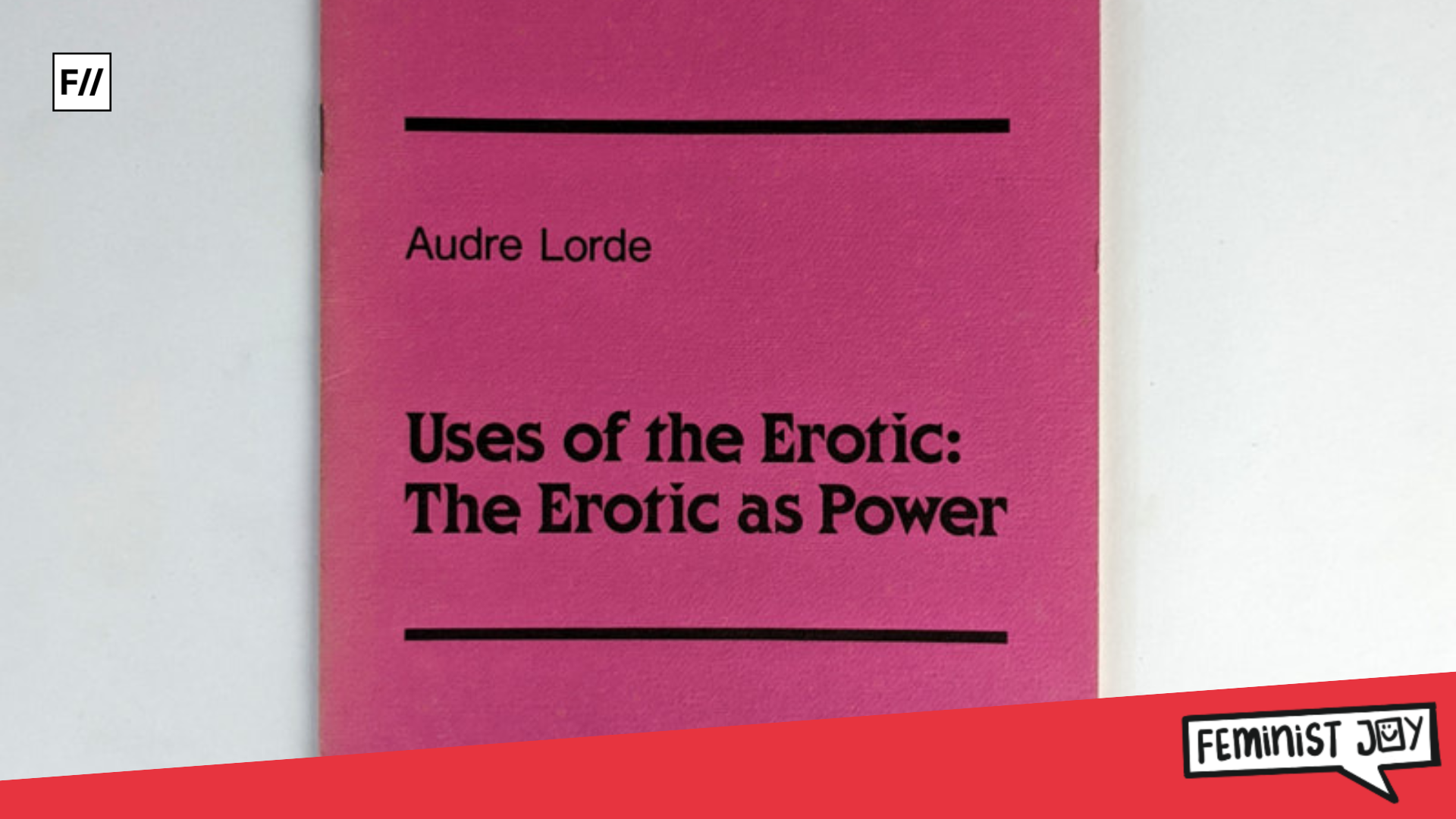Once that sweet facade of innocence is shattered, once that mirage of utopian dreams fades into oblivion, and you stand face-to-face with the bleakness of the reality of this world, and once that tiny flame of feminist sensibility is ignited in your heart, there is no going back. From then on, you stand caught up in the middle of a crossfire between the you who wishes to live life to the fullest carefree while coming into a blissfully ignorant agreement with society versus you who knows that this apparent freedom that you enjoy is merely a facade. You realise that this ‘freedom,’ has been granted to you for your compliance with the order. The order of patriarchy. So what is freedom then, and when will I ever be truly free?
If I were to trace that moment of reckoning for me, perhaps it would be the moment when I bled and magically transformed into a ‘woman,’ overnight. Perhaps it may have been something else, hidden behind the wall of my memory. And yet, for as long as I remember, I have constantly been at war with myself and the world outside, the nickname of ‘rebellious girl,’ christened to me early on by both my kin and the authorities at school. Because suddenly in all my interactions with society, in the way things have been until now, I noticed the chains of patriarchy, which were until that point invisible to me, and the small acts of resistance began.

As you come to the realisation that you serve the master called ‘Brahmanical patriarchy,’ and the weight of his centuries-old chains tightly restrains you, then it is a constant battle that you fight to free yourself from. Over time, in many parts of your being, you do manage to loosen their grip, while some areas remain clasped in their chokehold. And sometimes, the chains do not even come to vision, and you don’t realise until much later that a certain part of you remained bound without your knowledge. The process starts all over again, where you try to rid yourself of these seemingly never-ending shackles of Brahmanical patriarchy.
“It starts from home,” as they say, and so I began my acts of resistance from home, fighting against my own chains while trying to rid my family of theirs too. Because I realised that their chains extended to my own and doubly restrained me. But then, as it happened with me, I reached a point when I realised that struggling against the burden of these multiple chains was proving to be a losing game. They who were restrained did not want to be free, and neither did they want me to attain that freedom. The master and his ways were benevolent to us after all, because we belonged to his race.
I refused to accept this life of restraints. And so began my life of contradictions under the tyranny of the master. I had to come to a silent compromise with my kin, that in exchange for my silence and compliance, I get to enjoy the taste of freedom. Once I’m away from their watchful eyes, however, I start a secret revolution against the master. I join protests against the master, I become a member of the societies of deviants rebelling against the master, I pen down leaflets to inform the world about his tyranny, and I proudly dissent in open spaces.
But in their proximity, I’m reduced to silence, a stifling silence that is always threatening to burst from its confines. Ultimately, there’s only so much that you can do to try to curb this fiery passion of dissent, and so the traces of my true being creep in amidst their presence too. This battle against the master consists of a series of neverending wars against my kin.

Sometimes they respond by tightening the grip of the chains and silencing me. And yet they have come to realise that the making of this dissenter took place in front of their very own eyes, and they could not stop it even if they tried. If I have to bend to their will sometimes, then they cannot remain stoic to my ceaseless resistance either.
Then, being a feminist involves trying to navigate that space where I dissent against these hegemonic structures of power like Brahaminical patriarchy while looking out for my safety, owing to the identity markers that constantly put me at risk. With every step, I push the boundaries, challenging them more and more.
I am one of the many battered soldiers in this battle against these masters of hegemonic structures. Yet there’s always so much more that I can do. And there is no denying that compared to the many others who are fighting alongside me, in many matters I’m protected by the machinery of the same masters who I’m fighting against due to my social positioning.

Being a feminist then involves being my system of checks and balances. It becomes imperative in this fight against our common enemy that I do not end up stepping on the ones who stand in a more vulnerable position. Only when I do not cage my mind with the chains of ignorance and rigidity can I ever truly be on the right path towards that victory. This involves confronting some harsh realisations about yourself and your fallacies without losing your calm. It’s an ever-going process of learning and unlearning more and more that we have to take on, or we shall deviate from the true purpose of this journey. There is no dearth of sources to learn from in this world, after all.
While attempting to give a vocabulary to my inner turmoil and those hopeless days when I am left defeated and devastated in fighting this seemingly never-ending battle against systems of oppression and the very patriarchy, I quote our beloved Faiz Ahmed Faiz as a reminder to everyone and most importantly, to myself, to keep going:
A Few Days More by Faiz Ahmed Faiz (Translated by Muntansir Dalvi)
“A few more days, my love, only a few days more
It is our lot to live under the shadow of tyranny
To suffer this outrage, to bear this pain, to weep awhile
This legacy of our past is our cross to bear.”
About the author(s)
Sarah (She/Her) is your local student journalist and writer pursuing her Bachelor's in Literature from Delhi University. She seeks to strike a balance between a chaotic chronically online gen-z and an insatiable learner. At the risk of coming across as cheesy, she quotes Oscar Wilde on being asked to introduce herself, "To define is to limit."






This article rightly points out to the root cause of caste system in India and it’s adverse effects on life of women here. Traditional lifestyles are fast changing but the patriarchal mindset still exists in Indian society which must be addressed and reformed to truly create a sensible and responsible progressive society.
Lovely article and love Faiz. Islam is the best religion you get pride in wearing a hijab.